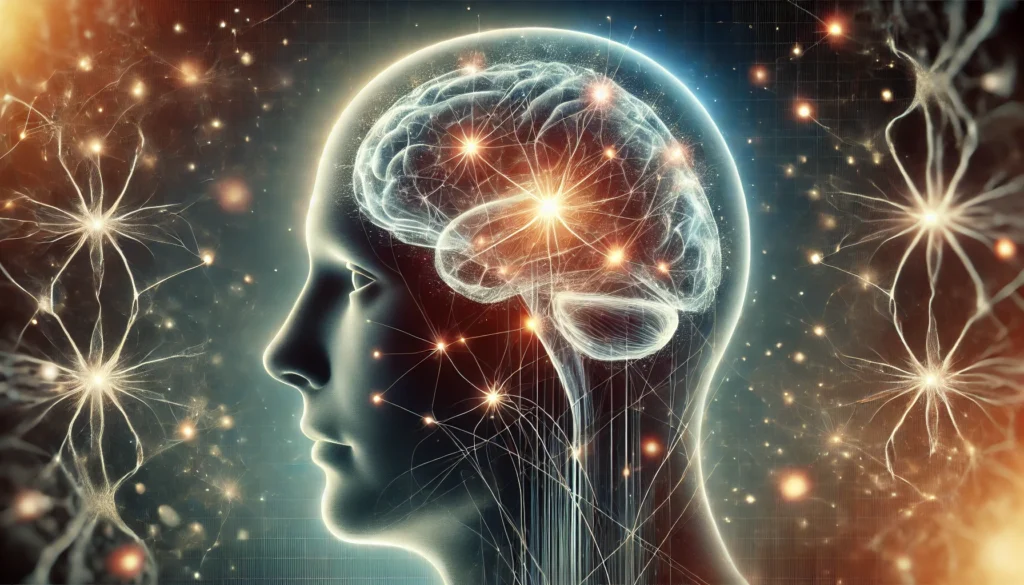In our fast-paced world, sleep often takes a backseat to other priorities, yet its importance cannot be overstated. Chronic sleep deficiencies have far-reaching implications for both physical and mental health, affecting individuals and societies at large. This article delves into the myriad consequences of inadequate sleep, offering insights into why it is a global concern and what can be done to address it.
You May Also Like: Nocturnal Sleep: Health Impacts and Solutions
The Global Sleep Crisis: Is Lack of Sleep a World Problem?
Sleep deprivation is not just a personal issue but a worldwide epidemic. According to the World Health Organization, sleep disorders are a global problem, affecting millions and contributing to various health challenges.
Many people believe they can function optimally on less sleep, but scientific studies contradict this notion. Understanding the science behind sleep reduction helps highlight its widespread consequences on cognitive and physical health.
The Role of Modern Technology
Modern technology has significantly impacted sleep patterns, with the proliferation of digital devices leading to an increase in screen time. The blue light emitted by screens disrupts the natural production of melatonin, a hormone essential for sleep regulation. As people spend more time on devices, particularly before bedtime, their sleep quality and duration are negatively affected.
In addition to that, technology-driven stress plays a major role in sleep disturbances by keeping the brain in a heightened state of alertness. This chronic stress can severely disrupt sleep patterns, making it harder for individuals to unwind before bedtime.
Work Culture and Sleep Deprivation
The demands of modern work culture, characterized by long hours and high stress, contribute significantly to the sleep crisis. Many industries glorify overwork and undervalue rest, leading employees to sacrifice sleep in pursuit of career success. This “always-on” mentality not only affects individual health but also reduces workplace productivity. Companies that recognize the importance of sleep are beginning to implement wellness programs and encourage work-life balance, promoting a healthier approach to professional demands.
Irregular sleep schedules due to work-related stress can lead to long-term sleep cycle disruptions, which negatively impact cognitive function and overall health. These disruptions can accumulate over time, increasing the risk of serious sleep-related disorders.
Societal Attitudes Towards Sleep
Societal attitudes towards sleep have evolved, but misconceptions still persist. Sleep is often viewed as a sign of laziness or weakness, leading individuals to prioritize other activities over rest. Cultural norms and expectations can pressure people to minimize sleep, despite its critical importance for health and wellbeing. Raising awareness about the necessity of sleep and dispelling myths can help shift societal perspectives, encouraging people to prioritize rest.
Economic Impact of Sleep Deprivation
Sleep deprivation has significant economic implications, affecting both individual productivity and national economies. The lack of sleep leads to increased absenteeism, reduced efficiency, and higher healthcare costs due to sleep-related health issues. Companies may face financial losses due to decreased employee performance and higher turnover rates.
Chronic sleep loss has long-term repercussions that extend beyond economic costs, contributing to severe health consequences over time. Research highlights how prolonged sleep deprivation can lead to irreversible cognitive decline and chronic disease development.
Global Initiatives to Tackle Sleep Issues
Governments and organizations worldwide are recognizing the importance of addressing sleep deficiencies. Initiatives such as public health campaigns, sleep education programs, and workplace wellness policies aim to promote healthy sleep habits. International collaborations are also emerging, focusing on research and policy development to tackle the global sleep crisis. By prioritizing sleep health, societies can work towards mitigating the widespread impact of sleep deprivation.

The Consequences of Sleep Deprivation
The effects of sleep deprivation are profound and multifaceted, impacting everything from cognitive function to immune response. Interrupted sleep patterns further exacerbate sleep deprivation’s negative effects, preventing the body from entering deep, restorative sleep cycles. These disturbances contribute to cognitive impairment, metabolic issues, and weakened immune function.
Cognitive Impairment and Brain Function
Sleep is crucial for cognitive processes, including memory consolidation, problem-solving, and decision-making. Research indicates that sleep deprivation impairs attention, alertness, and concentration, leading to errors and accidents. In severe cases, prolonged sleep deprivation can result in hallucinations and paranoia, mimicking symptoms of severe mental health disorders.
A common misconception is that lost sleep can be recovered by sleeping in on weekends, but this does not fully restore cognitive function. Understanding the myths and facts about sleep recovery can help individuals make better sleep decisions.
Memory and Learning Deficits
Lack of sleep disrupts the brain’s ability to process and store new information, leading to memory deficits. During sleep, the brain consolidates memories, transferring them from short-term to long-term storage.
Students who experience chronic sleep deprivation are particularly vulnerable to reduced memory retention and academic performance declines. Research shows that students who prioritize sleep perform significantly better on tests and cognitive tasks.
Impact on Problem-Solving and Creativity
Sleep is integral to creative thinking and problem-solving abilities. During sleep, the brain processes complex information and forms connections that aid in innovative thinking. Sleep deprivation limits these cognitive processes, reducing creativity and the capacity to solve problems efficiently. Individuals in creative fields may find their work suffering due to the impact of insufficient sleep on their cognitive functions.
Neurological Health and Sleep
Chronic sleep deprivation can have long-term effects on neurological health, increasing the risk of neurodegenerative diseases. Conditions such as Alzheimer’s disease and other forms of dementia have been linked to prolonged lack of sleep. The brain’s ability to clear toxins and repair itself is compromised by insufficient rest.
Furthermore, studies indicate that disrupted sleep patterns contribute to an increased buildup of beta-amyloid plaques in the brain, a hallmark of dementia. Addressing sleep deficiencies early can be a crucial preventive measure against cognitive decline.
Physical Health: Can Lack of Sleep Make You Sick?
The question “can you feel sick from lack of sleep?” is common, and the answer is a resounding yes. Sleep deprivation weakens the immune system, making individuals more susceptible to infections and illnesses. It can also exacerbate chronic conditions such as cardiovascular disease, diabetes, and obesity, all of which are linked to insufficient sleep.
Immune System and Sleep
Adequate sleep is essential for a robust immune system. During sleep, the body produces cytokines, proteins that help combat infections and inflammation. Sleep deprivation reduces the production of these protective proteins, leaving individuals more vulnerable to infections and prolonging recovery time from illnesses. Ensuring sufficient sleep is a vital component of maintaining a healthy immune response.
Cardiovascular Health and Sleep
Sleep plays a critical role in maintaining cardiovascular health. Insufficient sleep is associated with increased blood pressure, inflammation, and higher levels of stress hormones, all of which contribute to heart disease.
Poor sleep habits can directly lead to hypertension and long-term damage to blood vessels. Research suggests that consistent, high-quality sleep is essential for regulating blood pressure and reducing cardiovascular risks.
Metabolic Health and Obesity
Sleep deprivation disrupts hormonal balance, affecting metabolism and appetite regulation. Lack of sleep increases levels of ghrelin, the hormone that stimulates hunger, while reducing levels of leptin, the hormone that signals fullness.
Studies indicate that inadequate sleep significantly hinders weight loss efforts, making it harder for the body to metabolize fat. Prioritizing sleep is an essential factor in maintaining a healthy weight and preventing metabolic disorders.
Emotional and Mental Health
Chronic sleep deprivation is closely linked to mood disorders, including depression and anxiety. The lack of restorative sleep affects neurotransmitter regulation, leading to increased irritability, stress, and emotional instability. In teenagers and young adults, this can manifest as increased risk-taking behaviors and poor academic performance.
Depression and Anxiety
Sleep deprivation has a bidirectional relationship with depression and anxiety, where each condition exacerbates the other. Lack of sleep disrupts the balance of neurotransmitters like serotonin and dopamine, which are crucial for mood regulation.
People suffering from chronic sleep deprivation are more prone to developing anxiety disorders due to heightened stress responses. Addressing sleep-related issues early can help mitigate the risk of long-term emotional instability.
Stress and Emotional Regulation
Adequate sleep is essential for managing stress and maintaining emotional stability. Sleep deprivation increases the production of cortisol, the stress hormone, heightening feelings of stress and anxiety. It also affects the brain’s ability to regulate emotions, making individuals more prone to mood swings and irritability. Ensuring sufficient rest is vital for emotional resilience and stress management.
Impact on Adolescents and Young Adults
Adolescents and young adults are particularly vulnerable to the effects of sleep deprivation. During these developmental years, the brain undergoes significant changes that require adequate sleep for optimal function. Lack of sleep can lead to poor academic performance, risk-taking behaviors, and mental health issues. Encouraging healthy sleep habits in this age group is crucial for their overall development and well-being.
Sleep Deprivation Stages and Symptoms
Understanding the stages and symptoms of sleep deprivation is crucial for early intervention. Initial signs include fatigue, irritability, and difficulty concentrating. As sleep deprivation progresses, symptoms can escalate to include impaired judgment, memory lapses, and even microsleeps—brief episodes of sleep that occur involuntarily.
Early Signs of Sleep Deprivation
The early stages of sleep deprivation are often marked by subtle symptoms that can be easily overlooked. Individuals may experience persistent tiredness, mood changes, and trouble focusing on tasks. Recognizing these initial signs is crucial for taking corrective measures before more severe symptoms develop, preventing the progression of sleep deprivation.
Advanced Symptoms of Sleep Deprivation
As sleep deprivation continues, symptoms become more pronounced and disruptive. People may experience significant lapses in memory, impaired judgment, and decreased cognitive performance. In extreme cases, prolonged sleep deprivation can cause fainting spells and temporary loss of consciousness. This highlights the severe impact that lack of rest can have on the nervous system.
Chronic Sleep Deprivation and Long-term Effects
Prolonged sleep deprivation can have lasting effects on physical and mental health. Chronic lack of sleep is associated with the development of serious health conditions such as obesity, diabetes, and cardiovascular disease. It also increases the risk of mental health disorders, highlighting the importance of addressing sleep issues early to prevent long-term consequences.

Can Lack of Sleep Cause Flu-like Symptoms?
Interestingly, sleep deprivation can indeed mimic flu-like symptoms. Individuals may experience headaches, muscle aches, and a general feeling of malaise, often misattributed to a viral infection. This is due to the body’s inflammatory response to prolonged lack of sleep, further illustrating how deeply interconnected sleep is with overall health.
One lesser-known effect of sleep deprivation is its link to nausea, which can further exacerbate feelings of discomfort. Chronic sleep loss disrupts the body’s digestive system, leading to symptoms similar to motion sickness.
The Inflammatory Response to Sleep Deprivation
Sleep deprivation triggers an inflammatory response in the body, leading to symptoms commonly associated with illness. The production of pro-inflammatory cytokines increases, causing muscle aches, headaches, and general discomfort. This inflammation can exacerbate existing health conditions and contribute to the feeling of being unwell, emphasizing the need for adequate sleep to maintain overall health.
Differentiating Sleep Deprivation from Illness
Distinguishing between sleep deprivation and actual illness can be challenging due to overlapping symptoms. While both conditions may cause fatigue and aches, sleep deprivation is often accompanied by additional symptoms such as mood changes and cognitive impairment. Recognizing these signs can help individuals identify the root cause of their symptoms and take appropriate action to address their sleep needs.
Addressing Sleep-Related Symptoms
Alleviating the symptoms of sleep deprivation requires addressing the underlying cause: lack of sleep. Establishing a consistent sleep schedule, creating a conducive sleep environment, and managing stress are crucial steps in improving sleep quality. By prioritizing rest, individuals can reduce the inflammatory response and alleviate flu-like symptoms, promoting overall health and well-being.

Practical Advice for Overcoming Sleep Deficiencies
Addressing chronic sleep deficiencies requires a multifaceted approach, combining lifestyle changes with practical interventions.
Establishing Healthy Sleep Habits
Creating a conducive sleep environment is paramount. This includes maintaining a regular sleep schedule, ensuring a dark and quiet bedroom, and minimizing screen time before bed. The use of blue light-blocking glasses and white noise machines can also aid in improving sleep quality.
Setting a Consistent Sleep Schedule
A consistent sleep schedule is foundational to improving sleep quality. Going to bed and waking up at the same time each day helps regulate the body’s internal clock, promoting restful sleep. Even on weekends, maintaining a regular schedule can prevent disruptions to sleep patterns, ensuring consistent rest throughout the week.
Creating a Sleep-Friendly Environment
The sleep environment plays a crucial role in determining sleep quality. A dark, quiet, and cool bedroom is ideal for promoting restful sleep. Blackout curtains, earplugs, and white noise machines can help eliminate disturbances, creating an optimal setting for sleep. Additionally, investing in a comfortable mattress and pillows can enhance comfort and support better sleep.
Reducing Screen Time Before Bed
Limiting screen time before bed is essential for minimizing the impact of blue light on sleep. Ideally, screens should be turned off at least an hour before bedtime to allow the body’s natural melatonin production to begin. Instead, engaging in relaxing activities such as reading or meditating can help ease the transition to sleep and improve overall sleep quality.
Leveraging Technology for Better Sleep
Ironically, while technology contributes to sleep problems, it also offers solutions. Wearable devices and sleep apps provide insights into sleep patterns and quality, helping individuals make informed adjustments. Innovations in mattress technology and sleep aids continue to evolve, offering personalized solutions for sleep optimization.
Wearable Sleep Trackers and Apps
Wearable devices and apps are increasingly popular tools for monitoring sleep patterns and identifying areas for improvement. These technologies track various metrics, such as sleep duration, quality, and disturbances, providing users with valuable insights. By analyzing this data, individuals can make informed decisions about changes to their sleep habits, enhancing overall rest.
Advanced Mattress and Bedding Technology
Innovations in mattress and bedding technology offer personalized solutions for improving sleep comfort. Mattresses with adjustable firmness, temperature control, and pressure-relief features cater to individual preferences and needs. Additionally, bedding materials designed to regulate temperature and moisture can enhance comfort, promoting uninterrupted sleep.
Sleep Aids and Supplements
For some individuals, natural sleep aids and supplements can be beneficial in promoting restful sleep. Melatonin supplements, herbal teas, and aromatherapy products are popular options for supporting relaxation and sleep quality. However, it is essential to consult with a healthcare professional before using supplements to ensure they are appropriate and safe.
Behavioral and Cognitive Strategies
Behavioral and cognitive strategies can also play a crucial role in overcoming sleep deficiencies. Cognitive-behavioral therapy for insomnia (CBT-I) is a highly effective treatment that focuses on changing negative thoughts and behaviors related to sleep.
Breaking poor sleep habits requires consistency and an evidence-based approach, such as gradual sleep schedule adjustments. Implementing structured sleep hygiene strategies can significantly improve long-term sleep patterns.
Cognitive-Behavioral Therapy for Insomnia (CBT-I)
CBT-I is an evidence-based approach to treating insomnia by addressing the underlying cognitive and behavioral factors that contribute to sleep difficulties. This therapy involves techniques such as stimulus control, sleep restriction, and cognitive restructuring to change negative sleep-related thoughts and habits. By focusing on these areas, CBT-I helps individuals develop healthier sleep patterns and improve overall sleep quality.
Relaxation and Mindfulness Techniques
Incorporating relaxation and mindfulness techniques into daily routines can significantly enhance sleep quality. Practices such as deep breathing, progressive muscle relaxation, and mindfulness meditation promote relaxation and reduce stress, making it easier to fall and stay asleep. These techniques can be used before bed to create a calming pre-sleep ritual, supporting better rest.
Sleep Education and Awareness Programs
Raising awareness about the importance of sleep and educating individuals on healthy sleep practices is essential for addressing sleep deficiencies. Sleep education programs in schools, workplaces, and communities can provide valuable information on the benefits of sleep and strategies for improving sleep quality.
While some people may require less sleep, others function optimally with extended rest periods. Understanding individual sleep needs is essential in crafting personalized approaches to achieving optimal sleep health.

Future Implications and Research Directions
As research into sleep science advances, understanding the impact of sleep on health will continue to deepen. Future studies may explore the genetic basis of sleep needs, leading to personalized sleep recommendations. Additionally, the integration of artificial intelligence in sleep research promises to unlock new insights into sleep disorders and their treatment.
Genetic Research in Sleep Needs
Genetic research is poised to revolutionize our understanding of individual sleep needs. Identifying genetic markers associated with sleep patterns and preferences could lead to personalized sleep recommendations, optimizing rest for each individual. This research could also shed light on the genetic basis of sleep disorders, paving the way for targeted interventions and treatments.
Artificial Intelligence and Sleep Disorders
Artificial intelligence (AI) holds significant potential for advancing sleep research and treatment. AI algorithms can analyze large datasets to identify patterns and correlations in sleep disorders, leading to more accurate diagnoses and personalized treatment plans. The integration of AI in sleep medicine could also facilitate the development of innovative therapies and technologies, transforming the field of sleep health.
The Future of Sleep Technology
The future of sleep technology is promising, with ongoing advancements aimed at improving sleep quality and addressing sleep disorders. Innovations in wearable devices, smart mattresses, and sleep tracking apps continue to evolve, offering more precise and personalized insights into sleep patterns.
Understanding the biological mechanisms behind morning wakefulness is also key to improving sleep technology. Research on how the body transitions from sleep to alertness is helping refine sleep-tracking devices for better results.

Conclusion
Chronic sleep deficiencies are a pressing global issue with significant implications for individual and public health. By understanding the effects of sleep deprivation and adopting practical strategies for improvement, individuals can enhance their well-being and productivity. As awareness grows, so too will the resources and innovations available to support healthy sleep habits, fostering a world where sleep is prioritized as a cornerstone of health.
In conclusion, the adage “sleep is for the weak” could not be further from the truth. Sleep is for the strong, and recognizing its critical role is the first step toward a healthier, more balanced life. Let us commit to understanding and addressing the impact of chronic sleep deficiencies, for the betterment of ourselves and our communities. Through collective effort and education, we can transform societal attitudes towards sleep and pave the way for a future where rest is valued and prioritized.
Further Reading:
What Is Chronic Sleep Deprivation?
10 Effects of Long-Term Sleep Deprivation
Why Sleep Matters: Consequences of Sleep Deficiency
Important Note: The information contained in this article is for general informational purposes only, and should not be construed as health or medical advice, nor is it intended to diagnose, prevent, treat, or cure any disease or health condition. Before embarking on any diet, fitness regimen, or program of nutritional supplementation, it is advisable to consult your healthcare professional in order to determine its safety and probable efficacy in terms of your individual state of health.
Regarding Nutritional Supplements Or Other Non-Prescription Health Products: If any nutritional supplements or other non-prescription health products are mentioned in the foregoing article, any claims or statements made about them have not been evaluated by the U.S. Food and Drug Administration, and such nutritional supplements or other health products are not intended to diagnose, treat, cure, or prevent any disease.


